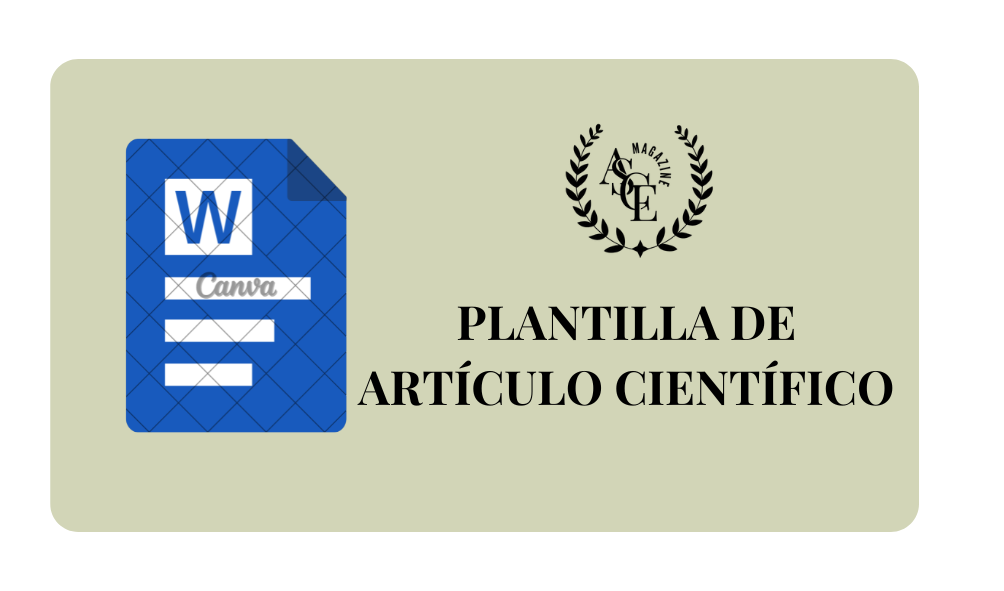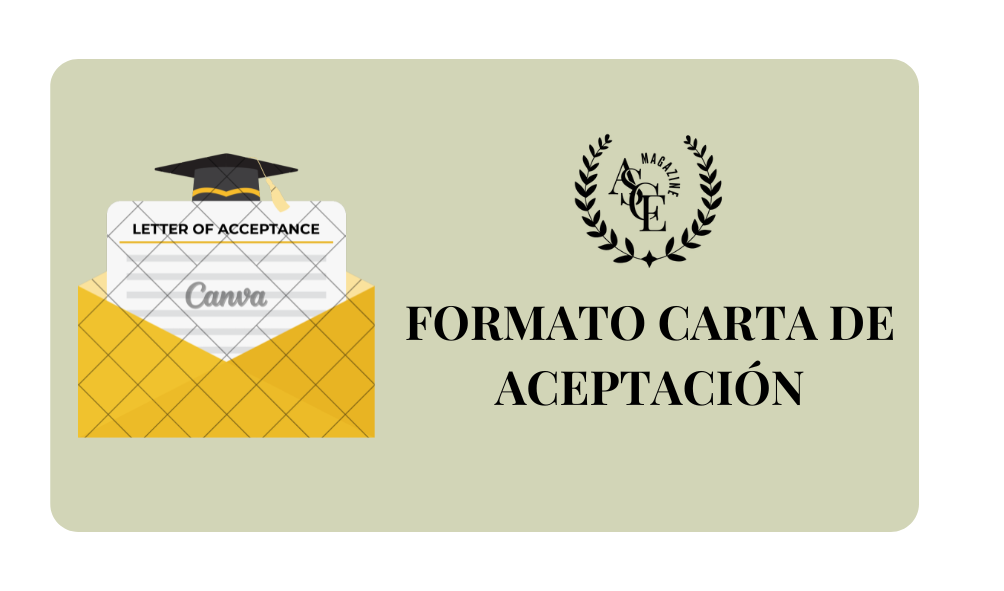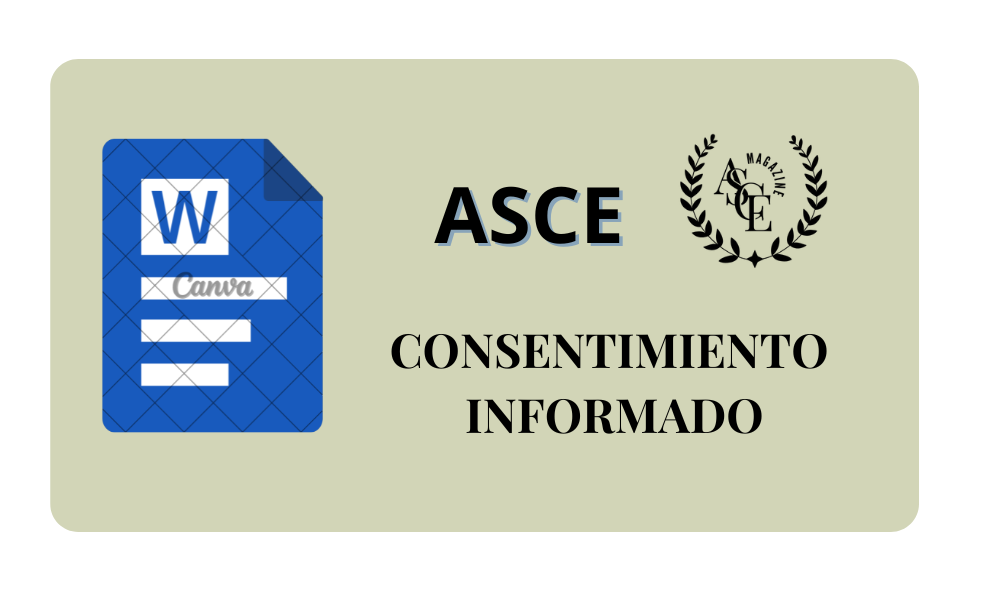Application of Playful Strategies Based on Neuroeducation to Strengthen Socio-Emotional Development in Children in Early Childhood Education.
DOI:
https://doi.org/10.70577/ASCE/1254.1275/2025Keywords:
Playful strategies, neuroeducation, socio-emotional development, early childhood education, emotional self-regulation, meaningful learning, emotional bonds.Abstract
This study aimed to examine the effects of employing play-based tactics rooted on neuroeducation principles on the socioemotional development of preschool children. A pedagogical intervention was implemented utilizing fun activities aimed at enhancing emotional regulation, empathy, self-esteem, and social skills, grounded in neuroplasticity and play as a foundational tool in early childhood development. The study employed a mixed-methods strategy utilizing a quasi-experimental pretest-posttest design alongside a control group. The sample comprised 60 children aged 4 to 5, evenly divided between the experimental and control groups. Employed strategies encompassed symbolic play, rhythmic activities, cooperative dynamics, and mindfulness exercises, utilizing visual, aural, and kinesthetic cues that engage several neural circuits associated with emotional processing. Validated instruments, including observation measures, organized teacher interviews, and narrative records, were employed. The findings indicated statistically significant enhancements (p < 0.05) in emotional expressiveness, impulse regulation, and prosocial conduct in the experimental group relative to the control group. Furthermore, there was an enhancement in intrinsic motivation and an increased readiness to learn within structured play settings. The research demonstrates that incorporating neuroeducational play strategies effectively promotes comprehensive socioemotional development in early childhood, endorsing its systematic integration into early childhood education curricula to facilitate the creation of significant and emotionally nurturing learning experiences.
Downloads
References
Albán Pazmiño, E. J., Bernal Párraga, A. P., Suarez Cobos, C. A., Samaniego López, L. G., Ferigra Anangono, E. J., Moreira Ortega, S. L., & Moreira Velez, K. L. (2024). Potenciando habilidades sociales a través de actividades deportivas: Un enfoque innovador en la educación. Ciencia Latina Revista Científica Multidisciplinar, 8(4), 3016–3038. https://doi.org/10.37811/cl_rcm.v8i4.12549 DOI: https://doi.org/10.37811/cl_rcm.v8i4.12549
Barham, A. I., Morton, L., & Cole, T. (2023). Enhancing early childhood socioemotional learning through digital observational tools: A case study using ClassDojo. Early Childhood Education Journal, 51(3), 485–498. https://doi.org/10.1007/s10643-022-01347-5
Bernal Párraga, A. P., Ninahualpa Quiña, G., Cruz Roca, A. B., Sarmiento Ayala, M. Y., Reyes Vallejo, M. E., Garcia Carrillo, M. D. J., & Benavides Espín, D. S. (2024). Innovation in early childhood: Integrating STEM from the area of mathematics for significant improvement. Ciencia Latina Revista Científica Multidisciplinar, 8(4), 5675–5699. https://doi.org/10.37811/cl_rcm.v8i4.12779 DOI: https://doi.org/10.37811/cl_rcm.v8i4.12779
Bernal Párraga, A. P., Tello Mayorga, L. E., Cintia Guisela, A. V., Troya, L. A., Pluas Muñoz, A. M., Mario Efren, C. Q., & Jumbo García, K. J. (2025). El impacto del uso de redes sociales en la autoestima de adolescentes. Ciencia Latina Revista Científica Multidisciplinar, 9(1), 498–517. https://doi.org/10.37811/cl_rcm.v9i1.15733 DOI: https://doi.org/10.37811/cl_rcm.v9i1.15733
Bernal Parraga, A. P., Toapanta Guanoquiza, M. J., Sandra Veronica, L. P., Borja Ulloa, C. R., Esteves Macias, J. C., Dias Mena, B. V., & Orozco Maldonado, M. E. (2024). Desarrollo de habilidades sociales y emocionales a través de proyectos colaborativos en educación inicial: Estrategias inclusivas para estudiantes con necesidades educativas especiales. Ciencia Latina Revista Científica Multidisciplinar, 8(4), 10134–10154. https://doi.org/10.37811/cl_rcm.v8i4.13156 DOI: https://doi.org/10.37811/cl_rcm.v8i4.13156
Bernal, A., & Guarda, T. (2020). La gestión de la información es factor determinante para elaborar estrategias innovadoras en política educativa pública. Iberian Journal of Information Systems and Technologies(E27), 35–48.
Bustamante Mora, F. F., Troya Santillán, B. N., Barboto Sanabria, C. M., Hernández Centeno, J. A., Martínez Oviedo, M. Y., Valencia Trujillo, G. D., & Bernal Parraga, A. P. (2024). El impacto del juego en el desarrollo cognitivo y socioemocional en la educación inicial: Estrategias pedagógicas para fomentar el aprendizaje. Ciencia Latina Revista Científica Multidisciplinar, 8(5), 4201–4217. https://doi.org/10.37811/cl_rcm.v8i5.13886 DOI: https://doi.org/10.37811/cl_rcm.v8i5.13886
Candra, P. A. (2025). Neuroeducation as a supportive approach in enhancing social‑emotional development in early childhood. Early Childhood Development Gazette, 1(2), 54–64. https://doi.org/10.61987/ecdg.v1i1.571
Chen, JJ. (2024) Un enfoque integrado para la enseñanza socioemocional (SET): Un estudio cualitativo de las creencias y prácticas de los docentes de preescolar en Estados Unidos. Early Childhood Educ J. https://doi.org/10.1007/s10643-024-01803-9 DOI: https://doi.org/10.1007/s10643-024-01803-9
Cipriano, C., Strambler, M. J., Naples, L. H., Ha, C., Kirk, M., Wood, M., Sehgal, K., Zieher, A. K., Eveleigh, A., McCarthy, M., Funaro, M., Ponnock, A., Chow, J. C., & Durlak, J. A. (2023). The state of evidence for social and emotional learning: A contemporary meta‑analysis of universal school‑based SEL interventions. Child Development, 94(5), 1181–1204. https://doi.org/10.1111/cdev.13968 DOI: https://doi.org/10.1111/cdev.13968
Denham, S. A. (2006). Social–emotional competence as support for school readiness: What is it and how do we assess it? Early Education and Development, 17(1), 57–89. https://doi.org/10.1207/s15566935eed1701_4 DOI: https://doi.org/10.1207/s15566935eed1701_4
Diamond, A., & Ling, D. S. (2019). Review: Interventions shown to aid executive function development in children 4 to 12 years old. Science, 333(6045), 959–964. https://doi.org/10.1126/science.1204529 DOI: https://doi.org/10.1126/science.1204529
Fajardo López, C. E., Yagual Cedeño, L. L., Quezada Sánchez, C. F., Toapanta Guanoquiza, M. J., Moreira Velez, K. L., Sandra Veronica, L. P., & Bernal Parraga, A. P. (2024). El papel de los padres en la educación inicial: Estrategias innovadoras para la participación familiar. Ciencia Latina Revista Científica Multidisciplinar, 8(4), 9881–9900. https://doi.org/10.37811/cl_rcm.v8i4.13139 DOI: https://doi.org/10.37811/cl_rcm.v8i4.13139
Ford, A. (2024). Where we live, learn and play: Environmental racism and early childhood development in review. Early Childhood Research Quarterly, 69, S71–S81. https://doi.org/10.1016/j.ecresq.2024.03.007 DOI: https://doi.org/10.1016/j.ecresq.2024.03.007
Hosokawa, R., Katsura, T., Nishida, C., Funato, K., & Mitani, A. (2024). Enhancing social-emotional skills in early childhood: Intervention study on the effectiveness of social and emotional learning. BMC Psychology, 12, 761. https://doi.org/10.1186/s40359-024-02280-w DOI: https://doi.org/10.1186/s40359-024-02280-w
Kangas, M., Venninen, T., & Lipponen, L. (2023). Designing digital play-based interventions to foster self-regulation in early learners. International Journal of Child-Computer Interaction, 37, 100492. https://doi.org/10.1016/j.ijcci.2023.100492
Lyu, H., Yang, Y., & Zhao, L. (2024). Effects of multisensory digital games on emotional self-regulation in preschool children. Computers & Education, 205, 104950. https://doi.org/10.1016/j.compedu.2023.104950 DOI: https://doi.org/10.1016/j.compedu.2023.104950
Lyu, Y., An, P., Zhang, H., Katsuragawa, K., & Zhao, J. (2024). Designing AI-enabled games to support social-emotional learning for children with autism spectrum disorders. arXiv. https://doi.org/10.48550/arXiv.2404.15576
Madrid Toapanta, A. L., Véliz Cedeño, M. C., Bernal Párraga, A. P., Toapanta Cadena, S. J., Abad Troya, L., Atarihuana Eras, M. L., & Macias Garcia, S. V. (2024). Estrategias activas para mejorar las competencias lectoras en edades tempranas. Ciencia Latina Revista Científica Multidisciplinar, 8(4), 10646–10664. https://doi.org/10.37811/cl_rcm.v8i4.13205 DOI: https://doi.org/10.37811/cl_rcm.v8i4.13205
Mondi, C. F., Giovanelli, A., & Reynolds, A. J. (2021). Fostering socio‑emotional learning through early childhood. International Journal of Child Care and Education Policy, 15(3), Article 6. https://doi.org/10.1186/s40723‑021‑00084‑8
Moreno, C. R., Pérez, A. M., & Torres, G. (2024). Evidence-based socioemotional programs in early education: A meta-analytic review. Early Child Development and Care, 194(2), 267–284. https://doi.org/10.1080/03004430.2023.2201457
Moreno, L., Montero, I., & Armada‑Crespo, A. (2024). School-based social-emotional programs in Latin American settings: A systematic review of effectiveness. Revista Iberoamericana de Educación, 34(2), 210–230. https://doi.org/10.35362/rie.v34i2.1812
Moreno‑Gómez, A. J., & Cejudo, J. (2019). Effectiveness of a mindfulness‑based social–emotional learning program on psychosocial adjustment and neuropsychological maturity in kindergarten children. Mindfulness, 10(1), 111–121. https://doi.org/10.1007/s12671-018-0956-6 DOI: https://doi.org/10.1007/s12671-018-0956-6
Newman, D., & Dusunbury, L. (2015). Conceptualizing social–emotional competencies: The CASEL framework in educational contexts. International Journal of Child Care and Education Policy, 9(2), Article 5. https://doi.org/10.1186/s40723-021-00084-8 DOI: https://doi.org/10.1186/s40723-021-00084-8
Párraga, A., Minuche, A., Floril, S., Bravo, J., Ponce, K., & Zambrano, J. (2025). El impacto de la autorregulación emocional en el rendimiento académico: Estrategias para el desarrollo de habilidades socioemocionales en educación básica. Revista O Universo Observável, 2, 1–10. https://doi.org/10.69720/29660599.2025.00053 DOI: https://doi.org/10.69720/29660599.2025.00053
Piedade, P., Neto, I., Pires, A., Prada, R., & Nicolau, H. (2024). PartiPlay: A participatory game design kit for neurodiverse classrooms. arXiv. https://doi.org/10.48550/arXiv.2404.11234 DOI: https://doi.org/10.1145/3597638.3614496
Pradeep, K., Sulur Anbalagan, R., Thangavelu, A. P., Aswathy, S., Jisha, V. G., & Vaisakhi, V. S. (2024). Neuroeducation: Understanding neural dynamics in learning and teaching. Frontiers in Education, 9. https://doi.org/10.3389/feduc.2024.1437418 DOI: https://doi.org/10.3389/feduc.2024.1437418
Rafiyya, A., et al. (2024). Early childhood social-emotional development: An impact on a developing country. International Journal of Evaluation and Research in Education, 13(5), 3081–3089. https://doi.org/10.11591/ijere.v13i5.29462 DOI: https://doi.org/10.11591/ijere.v13i5.29462
Silva, M. A., & Carvalho, P. (2023). Growing Up Playing: Long-term outcomes of a Brazilian preschool SEL intervention. Psicologia: Reflexão e Crítica, 36(1), Article 10. https://doi.org/10.1186/s41155-023-00251-z
Smith, J., & Lee, S. (2024). Integration of play-centered neuroeducational principles into early childhood teacher training. Trends in Neuroscience and Education, 27, 100—114. https://doi.org/10.1016/j.tine.2023.100114
Torres Illescas, V., Villacrés Prieto, P., Román Cabrera, J., & Bernal Párraga, A. (2024). Charting the path of reading development: A study on the importance and effective strategies for reading in early ages based on technology. In O. Gervasi et al. (Eds.), Computational Science and Its Applications – ICCSA 2024 Workshops (Vol. 14820). Springer. https://doi.org/10.1007/978-3-031-65285-1_2 DOI: https://doi.org/10.1007/978-3-031-65285-1_2
Volden, T. V., & Burelli, P. (2024). Children’s expressed emotions during playful learning games. arXiv. https://doi.org/10.48550/arXiv.2406.04794 DOI: https://doi.org/10.34190/ecgbl.18.1.2635
Walsh, K., L’Estrange, L., Smith, R., & Burr, T. (2024). Translating neuroscience to early childhood education: A scoping review of neuroscience based professional learning for early childhood educators. Educational Research Review, 45(1), Article 100644. https://doi.org/10.1016/j.edurev.2024.100644 DOI: https://doi.org/10.1016/j.edurev.2024.100644
Wang, L., Chen, X., & Pérez, R. V. (2024). Barriers to SEL implementation in preschool: Teacher training and systemic limitations. Frontiers in Psychology, 15, 1234567. https://doi.org/10.3389/fpsyg.2024.1234567
Yaffe, D., Shtoots, L., Isakow, O. K., Daniel, Y., Reuveni, O., & Golland, Y. (2025). Short playful interactions improve executive functions in children. Scientific Reports, 15, Article 23573. https://doi.org/10.1038/s41598-025-07028-z DOI: https://doi.org/10.1038/s41598-025-07028-z
Yang, Y., Shen, Y., Sun, T., & Xie, Y. (2025). Validating an LLM-based approach for identifying children’s development in free play settings. arXiv. https://doi.org/10.48550/arXiv.2505.03369
Zambrano Vergara, B. J., Bernal Párraga, A. P., Nivela Cedeño, A. N., Garcia Jimenez, D. I., Guevara Guevara, N. P., & Bravo Alcívar, G. M. (2024). Estrategias de gestión de aula para fomentar el aprendizaje autónomo en la educación inicial. Ciencia Latina Revista Científica Multidisciplinar, 8(3), 5379–5406. https://doi.org/10.37811/cl_rcm.v8i3.11745 DOI: https://doi.org/10.37811/cl_rcm.v8i3.11745
Zins, J. E., Weissberg, R. P., Wang, M. C., & Walberg, H. J. (2007). Building academic success on social and emotional learning: What does the research say? Teachers College Press.
Downloads
Published
How to Cite
Issue
Section
License
Copyright (c) 2025 Gloria Verónica Miranda Borja, Sonia Georgina Macas Chuncho, Narcisa de Jesús Ramírez Motoche, Diana Carolina Fajardo Chicaiza, Blanca Azucena Caballero Burgos

This work is licensed under a Creative Commons Attribution-NonCommercial-NoDerivatives 4.0 International License.
Eres libre de:
- Compartir : copiar y redistribuir el material en cualquier medio o formato
- Adaptar : remezclar, transformar y desarrollar el material
- El licenciante no puede revocar estas libertades siempre y cuando usted cumpla con los términos de la licencia.
En los siguientes términos:
- Atribución : Debe otorgar el crédito correspondiente , proporcionar un enlace a la licencia e indicar si se realizaron cambios . Puede hacerlo de cualquier manera razonable, pero no de ninguna manera que sugiera que el licenciante lo respalda a usted o a su uso.
- No comercial : no puede utilizar el material con fines comerciales .
- CompartirIgual — Si remezcla, transforma o construye sobre el material, debe distribuir sus contribuciones bajo la misma licencia que el original.
- Sin restricciones adicionales : no puede aplicar términos legales ni medidas tecnológicas que restrinjan legalmente a otros hacer algo que la licencia permite.



































